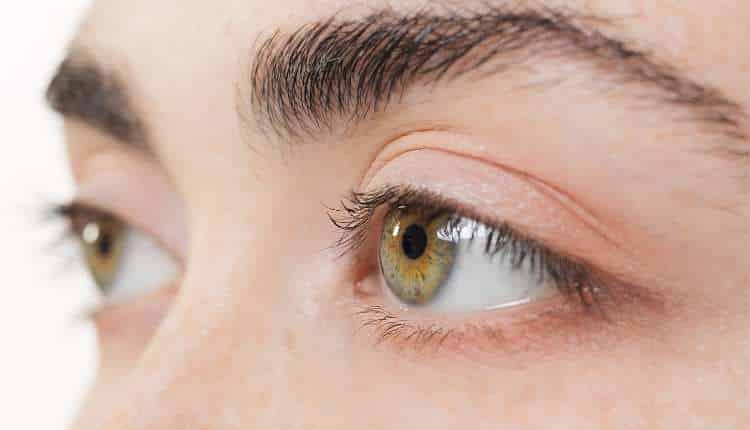
Prioritizing your vision health is vital to improving your quality of life. Failing to care for your eyes can compromise your ability to perform daily tasks well, whether it’s reading, focusing, or concentrating on certain tasks.
Concentration and focus, in particular, are essential skills that help you solve problems, understand complex concepts, and pay attention to details to ensure high-quality work. Healthy vision plays a crucial role in improving these skills.
Globally, at least two billion people have vision impairment issues, and almost half of these cases could have been prevented or are yet to be addressed, according to the World Health Organization. This means that many people are at risk of experiencing a lack of concentration due to poor vision health, making eye-healthy practices all the more essential.
Browse our online courses on meditation, positive thinking, overcoming procrastination, confidence, and freedom from distractions.
But how exactly does vision health affect your focus, and what can you do to improve it? Here’s what you need to know:
Vision Health and Concentration
According to Harvard Health research, poor vision can lead to hampered focus and cognitive decline.
Studies have mentioned that eye issues like cataracts, which cause blurry vision, can intensify the glare emitted by the sun and headlights, leading to a compromised concentration on the road and resulting in vehicular accidents.
Poor ocular health also reduces the ability to participate in brain-stimulating activities, negatively impacting brain function and your ability to focus. Uncorrected refractive errors like myopia and hyperopia, for instance, can cause blurry vision, which makes focusing and staying on task difficult.
Studies show that refractive errors can result in shorter attention spans, avoidance of near-work activities like reading, and difficulty recalling textual information.
A study published in MDPI also found that lack of concentration due to poor vision can affect academic performance. Compromised eyesight can negatively impact educational potential, especially since poor vision can make it difficult to focus on reading texts written on the board or a textbook, thus hampering learning opportunities.
The same study found that reduced vision causes students to be less motivated to explore more information, hindering knowledge formation.
Maintaining and improving visual health is an effective way to boost your concentration and focus, enhancing productivity in accomplishing essential tasks. Here’s what you can do:
Improving Vision Health and Focus
Wear the Right Eyeglasses
Wearing prescription glasses is one of the most effective ways to preserve your eye health and retain visual focus. Choosing suitable eyeglasses with an accurate prescription enhances your eyes’ optical power and reduces blurry vision, helping you focus on your tasks better.
Luckily, retailers now offer a range of different frames and lenses suitable to a variety of vision needs. Glasses.com, for instance, allows you to equip your frames with blue-light-blocking lenses alongside your regular prescription to minimize exposure to harmful light that can cause visual fatigue, as well as anti-reflective lenses that deflect glare and reduce the risks of eye irritation.
Corrective glasses can thus help you lock in and concentrate on your tasks more efficiently without risking distraction from eye strain or glare.
Take Regular Eye Exams
Booking regular eye check-ups is another way to help you track your vision health and identify possible issues, making it easier to pinpoint solutions to improving your vision and focus.
During a comprehensive eye exam, your eye doctor can track or assess your vision health and check for early signs of refractive errors and other ocular problems like glaucoma, which can negatively impact your vision and ability to focus on daily tasks.
This can lead to early treatment to prevent eye conditions from developing or worsening.
Experts recommend that children and adults get a comprehensive exam annually to ensure healthy vision. To schedule an eye exam, you can look for local retailers like Target Optical or check with EyeCare America, which offers free comprehensive eye exams.
Do Yoga Exercises
Did you know that yoga exercises don’t just help you with improving your focus and meditation but can also help protect your vision? According to a study published by the National Institutes of Health, yoga practices that involve relaxation and mindfulness techniques can improve blood circulation in the eyes, reduce intraocular pressure, and increase tear film production, helping you maintain your ocular health.
Studies show that these exercises can also enhance visual perception and attention. Specific eye yoga exercises, such as Jyoti-trataka (looking steadily at a specific point or a flame), can reduce eye pressure and improve vision health.
Additionally, by incorporating deep meditation and breathing exercises, yoga can help you further sharpen your concentration, allowing you to kill two birds with one stone.
Take Frequent Screen Breaks
Taking regular screen breaks is also essential in preserving ocular health and concentration.
Whether you’re scrolling through social media or accomplishing tasks using your computer, being hyper-fixated on the screen for long periods can reduce your attention span and lead to a reduced blinking rate that causes dry eyes, a painful eye strain symptom.
Aside from dry eyes, eye strain from too much screen time can also result in blurry vision and headaches, affecting concentration and hampering productivity.
To help you recharge your eyes and concentrate better, you can do eye-healthy routines like the 20-20-20 method: for every 20 minutes, look at something 20 feet away for 20 seconds.
Your eye health and ability to focus may be more connected than you think. When you have compromised vision, it can be difficult to concentrate on even the most simple tasks, like reading or retaining information. Therefore, practicing eye-healthy habits is essential in preserving ocular health and achieving better focus.

